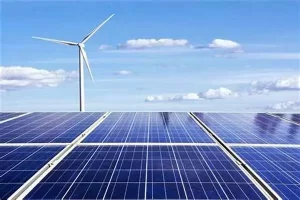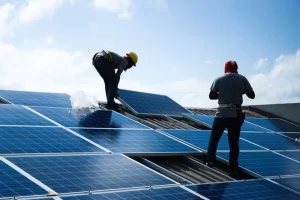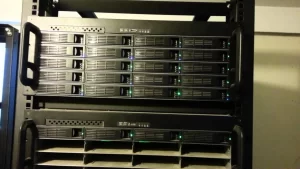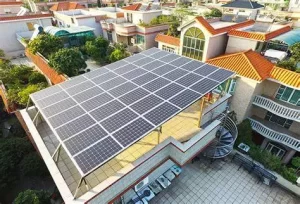Energy-Saving New Trends: A Complete Guide to Home Solar Panel Systems
In today’s world, the quest for sustainable living and energy efficiency has led many homeowners to explore renewable energy sources such as solar power. Among these, home solar panel systems have emerged as a popular choice due to their ability to harness the sun’s energy and convert it into electricity for household use. This article aims to provide a comprehensive guide to solar panel systems, covering everything from their benefits and components to installation and maintenance considerations.

Benefits of Home Solar Panel Systems
Home solar panel systems offer numerous benefits, both environmental and financial. Firstly, they provide a clean and renewable source of energy, reducing reliance on fossil fuels and lowering carbon emissions. This contributes to environmental sustainability by mitigating climate change and reducing air pollution.
Financially, investing in a solar panel system can lead to significant long-term savings on electricity bills. By generating your own electricity, you can reduce or even eliminate your dependency on grid-supplied power, thereby shielding yourself from future electricity price hikes.
Components of a Home Solar Panel System
A typical solar panel system consists of several key components:
Solar Panels (Photovoltaic Modules): These are the devices that capture sunlight and convert it into electricity. Solar panels are usually mounted on rooftops or ground-mounted arrays, positioned to receive maximum sunlight exposure.
Inverter: The inverter converts the direct current (DC) electricity produced by the solar panels into alternating current (AC) electricity, which is used by most household appliances.
Mounting Structure: This provides support and positioning for the solar panels, ensuring they are securely fixed and optimally angled to capture sunlight.
Battery Storage (Optional): Some systems include batteries to store excess energy generated during the day for use during periods of low sunlight or at night.
Installation Process
Installing a home solar panel system typically involves the following steps:
Site Assessment: Evaluate your home’s suitability for solar panels based on factors like roof orientation, shading from nearby trees or buildings, and local climate conditions.
Design and Quotation: Work with a solar installer to design a system tailored to your energy needs and budget. Obtain multiple quotes to compare equipment quality, warranties, and installation costs.
Permits and Approvals: Obtain necessary permits from local authorities or homeowner associations before installation can commence.
Installation: The solar panels, inverter, and mounting structure are installed by trained professionals. Installation times vary but typically take a few days to complete.
Connection to the Grid: After installation, your system will be inspected and connected to the electrical grid by your utility company or relevant authorities.
Maintenance and Optimization
To ensure your solar panel system operates efficiently and effectively over its lifespan, regular maintenance is essential. This includes:
Cleaning: Periodically clean the solar panels to remove dust, dirt, and debris that can reduce their efficiency.
Monitoring: Utilize monitoring software provided by the manufacturer or installer to track energy production and detect any performance issues promptly.
Annual Inspections: Schedule annual inspections by a qualified technician to check for potential issues and ensure all components are functioning correctly.
Conclusion
In conclusion, home solar panel systems represent a sustainable and cost-effective way to generate electricity for residential use. By harnessing the power of the sun, homeowners can reduce their environmental footprint, save money on electricity bills, and increase energy independence. However, investing in a solar panel system requires careful planning, including site assessment, system design, and ongoing maintenance. With proper installation and maintenance, a solar panel system can provide reliable electricity for many years to come, contributing to a cleaner and greener future.
Contact us
- Email:[email protected]
- Tel: +86 13651638099
- Address: 333 Fengcun Road, Fengxian District, Shanghai
Get A Quote Now!
Read more

Unveiling Photovoltaic+Energy Storage: Four Major Application Scenarios Leading the Future of Energy
In this way, the energy landscape is evolving, and one of the most thrilling developments in renewables is the integration of photovoltaics energy storage.

From Theory to Practice: Four Methods for Estimating Photovoltaic Power Generation
Photovoltaic power generation has become an essential part of modern energy solutions, particularly in home solar systems and distributed power applications

Rack-Mounted Lithium Iron Batteries: Creating Efficient and Reliable Energy Storage Solutions
When it comes to modern energy solutions, rack-mounted lithium iron batteries are taking center stage in a variety of industries. Whether you’re powering data centers, stabilizing energy for households, or keeping critical systems online at 5G base stations, these batteries have become the unsung heroes of our electrified world.

Late Night Energy Saving Tips: How to Maximize Electricity Savings During Off-Peak Hours
With rising energy costs, homeowners are increasingly exploring innovative ways to save on their electricity bills. One effective approach is utilizing off-peak hours—times when electricity rates are significantly lower due to reduced demand.
